“In the Zaporizhzhia Region, major newspapers have ceased to exist, but local, front-line newspapers continue publishing! These are publications that readers always support. People may not trust the head of a city or village, but the editor of a newspaper is always in authority in their territory!”
These words of the editor-in-chief of the Holos Huliaipillia newspaper, Tetiana Velyka, were uttered during the recent screening of the documentary called On The Frontier. The Heroic Story of the Journalist from the Front-Line Newspaper, filmed by the information service of the National Union of Journalists of Ukraine (NUJU) and dedicated to the work of front-line media journalists.
Tetiana Velyka, who heads one such publication, says that she is one of those who “do not just believe, but strongly believe in the power of her media outlet.”
“If I didn’t have such a feeling, I might not have started to revive it!” emphasized Tetiana in a comment for the NUJU. “After all, it is not easy – considering the fact that the enemy is now standing seven kilometers from my house in Huliaipole…”

Having evaluated the positive experience of the Orikhiv’s Trudova Slava newspaper, which, with the help of the NUJU, managed to recover the first in the Zaporizhzhia Region, Tetiana Velyka asked for help from the Union and in early October 2023, after a 586-day break, the Holos Huliaipillia newspaper, soon turning 94 years old, came to the reader again. The Huliaipole City website and social networks, as well as the publication’s Telegram channel, are also operating.
Reviving a publication in the front-line territory when part of the former readership is under occupation, is not an easy task. In the months that have passed since the newspaper’s restoration, the editor has already accumulated considerable experience and thoroughly understood the difficulties of working in a front-line city.
First, a full-fledged place of work – the newsroom – was lost: the premises were destroyed in russian shelling.
Secondly, the number of employees decreased from eight before the war to four.
Thirdly, the number of subscribers, which before the war was 1,800, has now decreased to 450.
Fourthly, the bodies of state administration and local self-government are no longer able to enter into agreements on the coverage of their activities.
Fifthly, the advertising market was completely lost, while before the war, four out of 12 newspaper pages were devoted to advertising.
“As for farmers and entrepreneurs, unfortunately, in our front-line region, they are in no better condition than I am,” notes Tetiana Velyka. “My husband is a farmer. Unfortunately, most of the leased land is on the line of fire, on which land is not cultivated at all. This is the situation the farmers of the entire Huliaipole area are in. Therefore, no one will undertake to finance the newsroom of the Holos Huliaipillia newspaper! Every month, we have to spend about UAH 40,000 on salaries and newspaper printing. I am now talking about the minimum wage…”
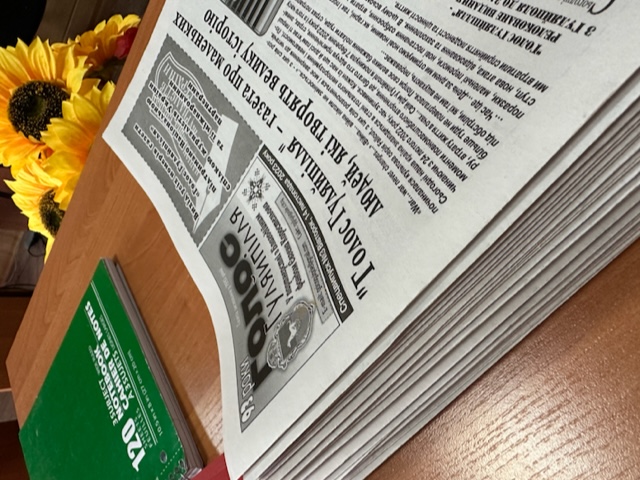
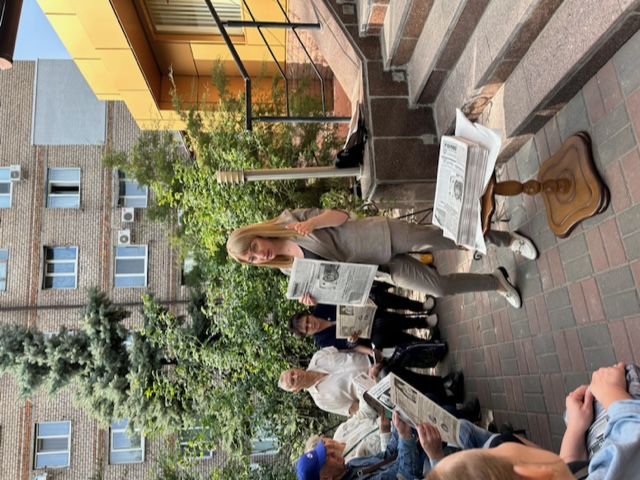
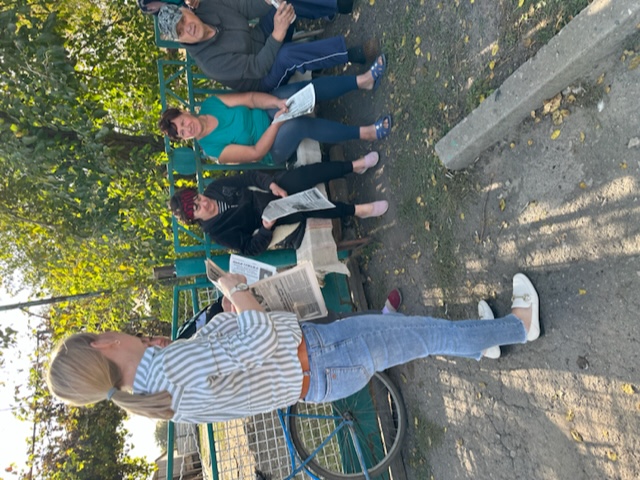
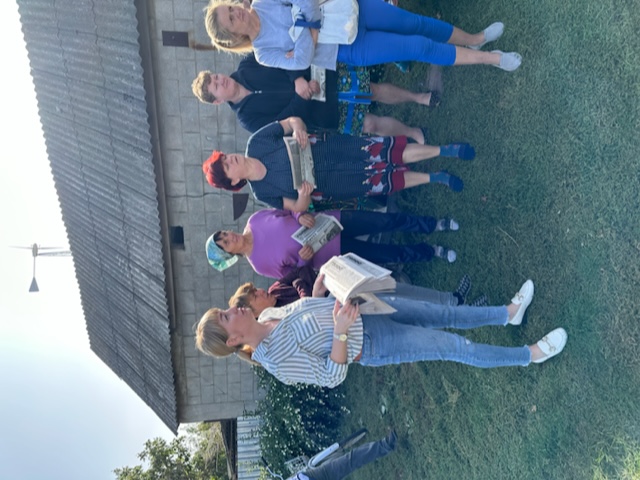
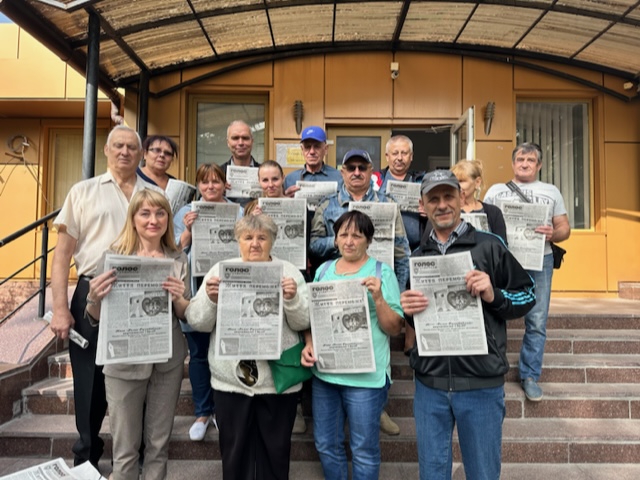
“Qualified employees, loyal readers, advertising market, agreements with authorities… All these factors before the war made our media truly independent and financially capable,” notes Tetiana Velyka. “Today, they practically do not work. Therefore, we are forced to look for donors and grant programs, without which it is simply impossible for our frontline media to survive.”
Currently, the newsroom closely cooperates with the NUJU and the Public Interest Journalism Lab with the support of the German foundation European Centre for Press and Media Freedom (ECPMF). By the way, the latter agreed to Holos Huliaipillia‘s application and planned five-month funding for NUJU‘s proposal, which should start in June. In addition, Holos Huliaipillia and four other front-line newspapers received three-month funding under the Close To Zero Line project initiated by the NUJU together with the Dutch international organization Free Press Unlimited.
Summing up the financial results, the editors conclude that 85% of the income currently comes from financial support from donors and only 15% from subscription funds.
“Responding to the publication’s request, the NUJU decided to provide Holos Huliaipillia with additional financial support of UAH 15,000 so that the newsroom could pay off the debt for the previous printing of the newspaper,” says NUJU President Sergiy Tomilenko. “The funds were allocated thanks to the partnership with the Journalist Initiative charity fund, financed by GREEN COOP and the Japan Offspring Fund.
“We are sincerely grateful for the support,” notes Tetiana Velyka. “In order to continue working, we have everything we need – and the desire (which persists despite constant explosions, the destruction of our hometown and our houses), and friends – financial donors. We believe in our strengths and continue to create quality materials that we are not ashamed of!”
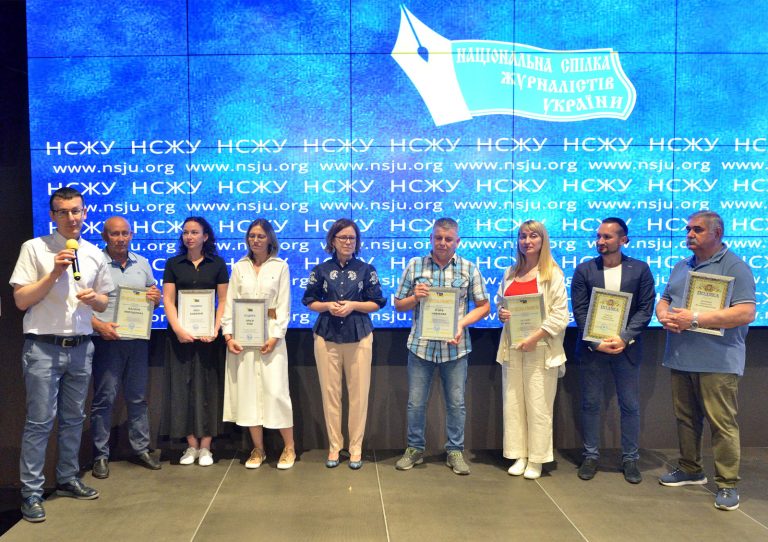
Revival of local publications in the front-line and de-occupied territories, where there is a noticeable lack of objective pro-Ukrainian information on the local population is one of the priority tasks of the NUJU. As of now, the Union, with the assistance of international partners, has managed to finance the re-release of 32 such media.
NUJU Information Service

 THE NATIONAL UNION OF
JOURNALISTS OF UKRAINE
THE NATIONAL UNION OF
JOURNALISTS OF UKRAINE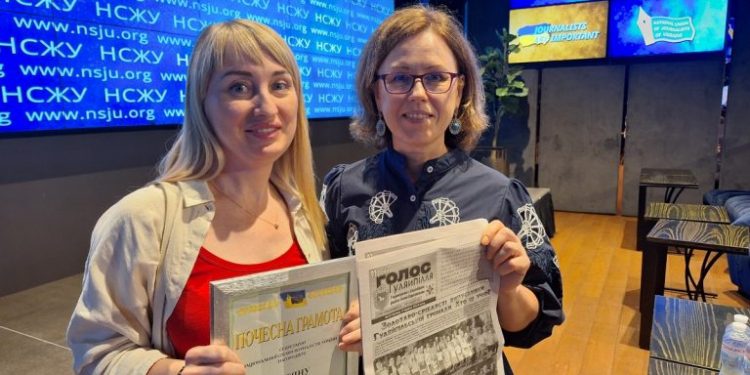
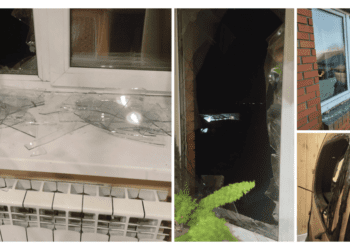
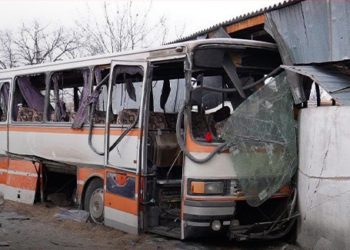














Discussion about this post